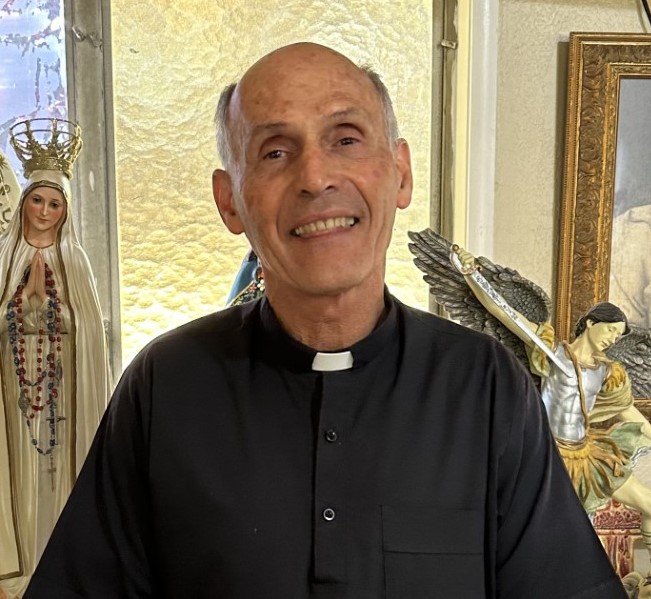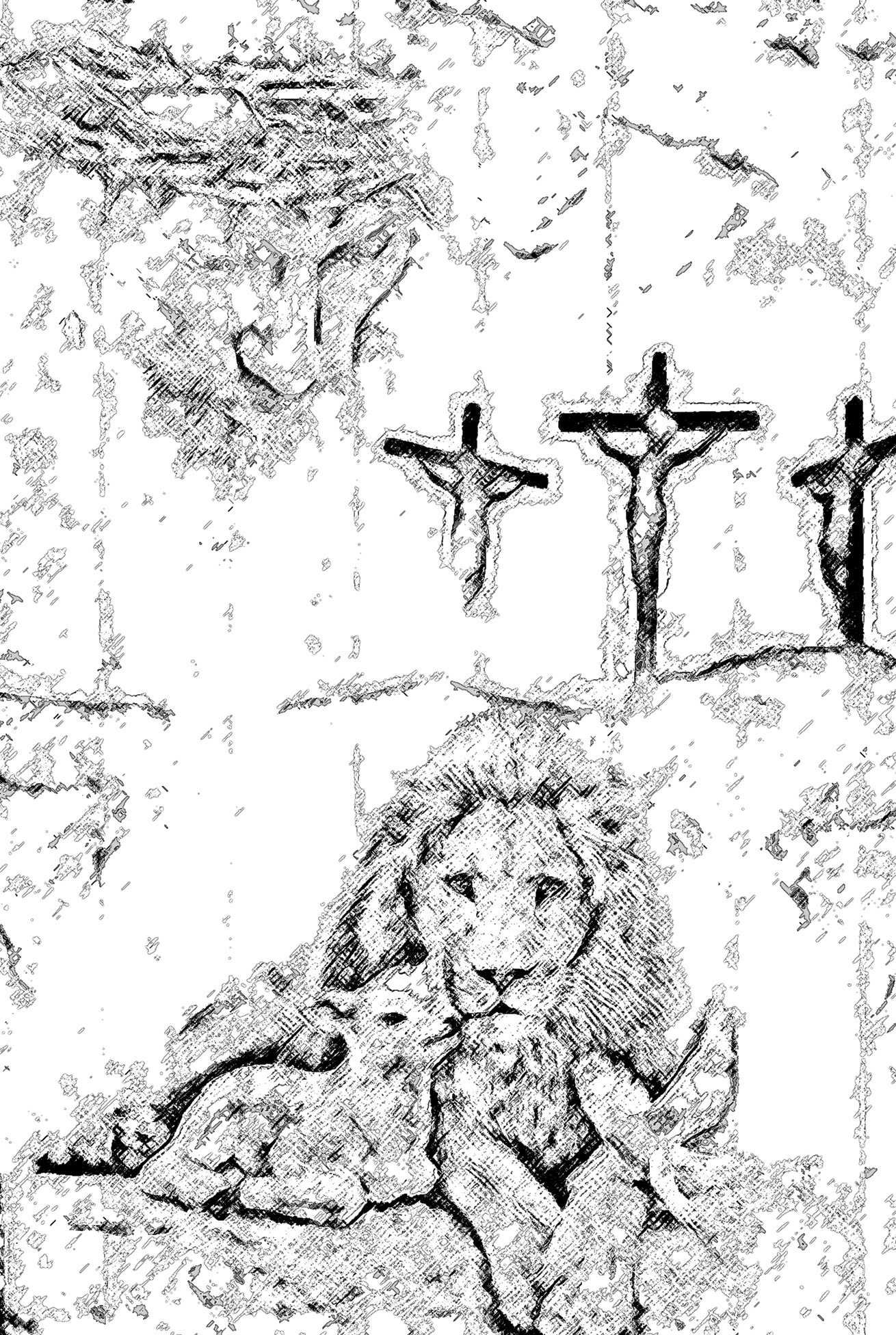- Clergy Corner
Jesus: Lamb and Lion
by Fr. Alvaro Delgado
Summer 2024
In the Gospel of John, Jesus enters the temple with the force of a hurricane, overturns tables, and drives out those who make of the House of His Father a marketplace. Could this be the same kind and gentle Jesus of goodness and compassion, who surrenders Himself to death on a cross?
We’re left perplexed to see that this meek and gentle lamb is at the same time a ferocious lion. How could that be?
It leads us to ponder the lesson of the Sacred Scriptures from beginning to end. The God who is perfectly holy and pure abhors sin and corruption because it goes against His nature, against the order of creation, and ultimately brings human beings to ruin.
For certain, God is supremely, infinitely merciful, and knows well our weaknesses, our sinfulness. But He yearns to purify the temple of our hearts of all sin, all idolatry, all stain of corruption, as he cleansed the temple in His day.
It’s something that makes the world today queasy and uncomfortable. We’d rather not hear of our wrongdoing, but of a meek and gentle Jesus, Mr. Nice Guy, who takes pity upon us, accommodates Himself to our habits, and allows us to wallow in the mire of our sins.
This, of course, is a modern caricature of Jesus, and not the Jesus of the gospels who rebukes harshly the religious leaders for their hypocrisy and dishonest intentions. In the Gospel of John, he tells skeptics they are no sons of Abraham, but sons of the devil. It’s tantamount to breaking the commandment of the modern day: thou shall not offend anyone’s feelings.
What do we see today? People who make no distinction between their being, their person, and their sin. Sin is who they are, they can’t help it, nor can they change it. When a particular sin is denounced, it clashes with the popular notion of the individual’s perfect freedom to make decisions that cannot be questioned, as if human freedom were something sacred and infallible.
So it is, a young lady’s self-esteem is wounded when she’s told she dresses immodestly. If a couple is told they’re living in sin, they respond in anger: who are you to judge? The same mantra is repeated for the homosexual engaged in sexual relations. We easily forget the timeless words of St. Augustine, who counselled that correction of the sinner, in a spirit of fraternity, is the highest form of love.
It’s all too common today for people to enclose themselves in a superficial self-esteem rooted in worldly standards, depriving themselves of the gift of authentic self-love offered by Jesus Christ, who loves the sinner to the point of death. In Him, the sinner freely and without fear acknowledges his sin, confident of the mercy of Christ, cognizant of his high dignity as a child of God.
Jesus speaks regularly of sin, of the need for repentance, and the horrors of hell for those who ultimately turn their backs on God. He speaks with such severity because He knows well the weakness of the human heart, and so he works to melt the hardened heart, blinded and enslaved by the evil of his sin.
In particular, Jesus seeks to deliver from the shackles of sin those who give themselves to the profanation of the human body, as is so prevalent today. In today’s world, the body is no longer considered sacred, but rather as an object, an instrument to accomplish some utilitarian end.
With this mindset, the body is reduced to a mere material entity, with no sense of a transcendental, spiritual dimension. From there, the individual declares his or her total autonomy, apart from any notion of God, and is free to abort an unborn child, use contraception to block conception of a child, or on the other hand conceive an embryo in a laboratory dish like any commodity. The individual is also free to change his or her gender, at will, by mutilating his or her body.
With the wholesale desecration of the body, it’s no surprise the plague of pornography today annihilates the Biblical principle of men and women created in the image and likeness of God, to form a communion of love. Love is killed, replaced by lust and selfishness.
In this environment, the individual too easily falls victim to the seductions of the Zeitgeist, the irresistible spirit of the world, wanting to do what everybody does, because everybody is doing it. But Jesus warns in Matthew 7:13: “Enter through the narrow gate. The gate that leads to damnation is wide, the road is clear, and many choose to travel it. But how narrow is the gate that leads to life, how rough the road, and how few there are who find it!”.
The call of God, for His people, for every believer, from the Old Testament to Jesus in the New Testament, is to imitate God, be perfect and holy, as your heavenly Father is perfect and holy. It’s a call to the purification of my inner temple, by the grace and mercy of Jesus Christ, who forgives me, lifts me up when I fall.
But we must never forget. The pardon of Jesus, His redemption does not come from cheap and easy grace. It comes by way of the temple of the Body of Jesus, destroyed for us on a cross, risen from the dead. The price of redemption was indeed very high.
We must never forget: The Lord who cleanses the Temple with the ferocity of a lion and dies shamefully on a cross, the Lamb of God, is the God motivated by love, and only love, to pour down His grace upon every sinner who seeks forgiveness, follows the way of God, and makes of his heart a holy dwelling, a temple of purity for the Lord.
About The Author



